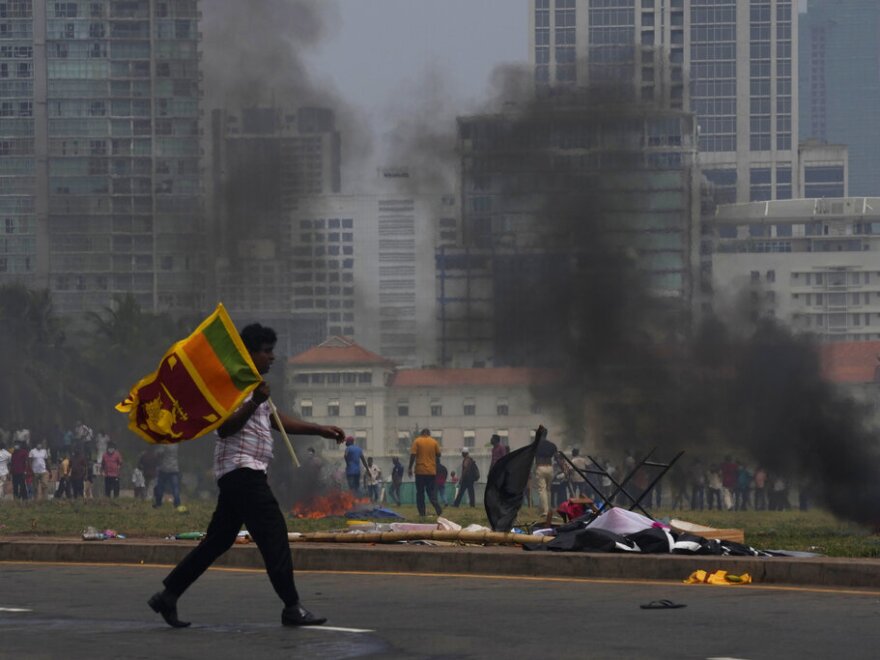Updated May 9, 2022 at 11:35 AM ET
MUMBAI – "One down, one to go."
That's a chant heard at anti-government protests late Monday in Sri Lanka's capital Colombo, after the resignation of one of the two remaining Rajapaksa brothers – the country's most powerful politicians.
Prime Minister Mahinda Rajapaksa tweeted Monday that he has submitted his resignation — "effective immediately" – amid his country's worst economic crisis in decades. Local media published an undated copy of what's purported to be his resignation letter.
The person he submitted his resignation to was his brother: President Gotabaya Rajapaksa. There was no immediate word from the president's office on whether the resignation was accepted.
The Rajapaksa brothers have been the focus of nationwide protests for several weeks. Demonstrators blame them for mismanaging an economic crisis that's led to months of fuel and food shortages, rolling blackouts and soaring inflation. The Indian Ocean island nation is in bailout talks with the International Monetary Fund, and has also received loans from India and China.
The prime minister's resignation also came hours after some of his supporters attacked peaceful protesters who had been camped out in front of government offices. TV footage showed them wielding clubs and setting fire to protesters' tents. Dozens of people were injured.
Retaliatory attacks on government ministers' homes were reported across the country.
Police imposed an emergency curfew, on top of a state of emergency the president had declared over the weekend. Armed troops were deployed in Colombo.
Despite the curfew, protesters rallied late into the night at Colombo's Galle Face seafront, cheering Mahinda Rajapaksa's resignation and calling for his brother Gotabaya to do the same. "Gota Go Home!" they chanted, using the president's nickname.
The prime minister's resignation means his Cabinet is dissolved. In recent weeks, other government ministers had already resigned and been replaced – in some cases, several times. But President Gotabaya Rajapaksa remains in power, and has repeatedly refused to step down.
The Rajapaksa family has dominated Sri Lankan politics in recent years. Mahinda, 76, was first elected to parliament 1970. He previously served as president for a decade, and prime minister twice. His younger brother, 72-year-old Gotabaya, was elected president in 2019. He previously served as defense secretary, and a much-feared intelligence chief accused of human rights violations during Sri Lanka's 26-year civil war.
At least two other Rajapaksa brothers, and a nephew, have also held Cabinet positions.
Copyright 2022 NPR. To see more, visit https://www.npr.org.



